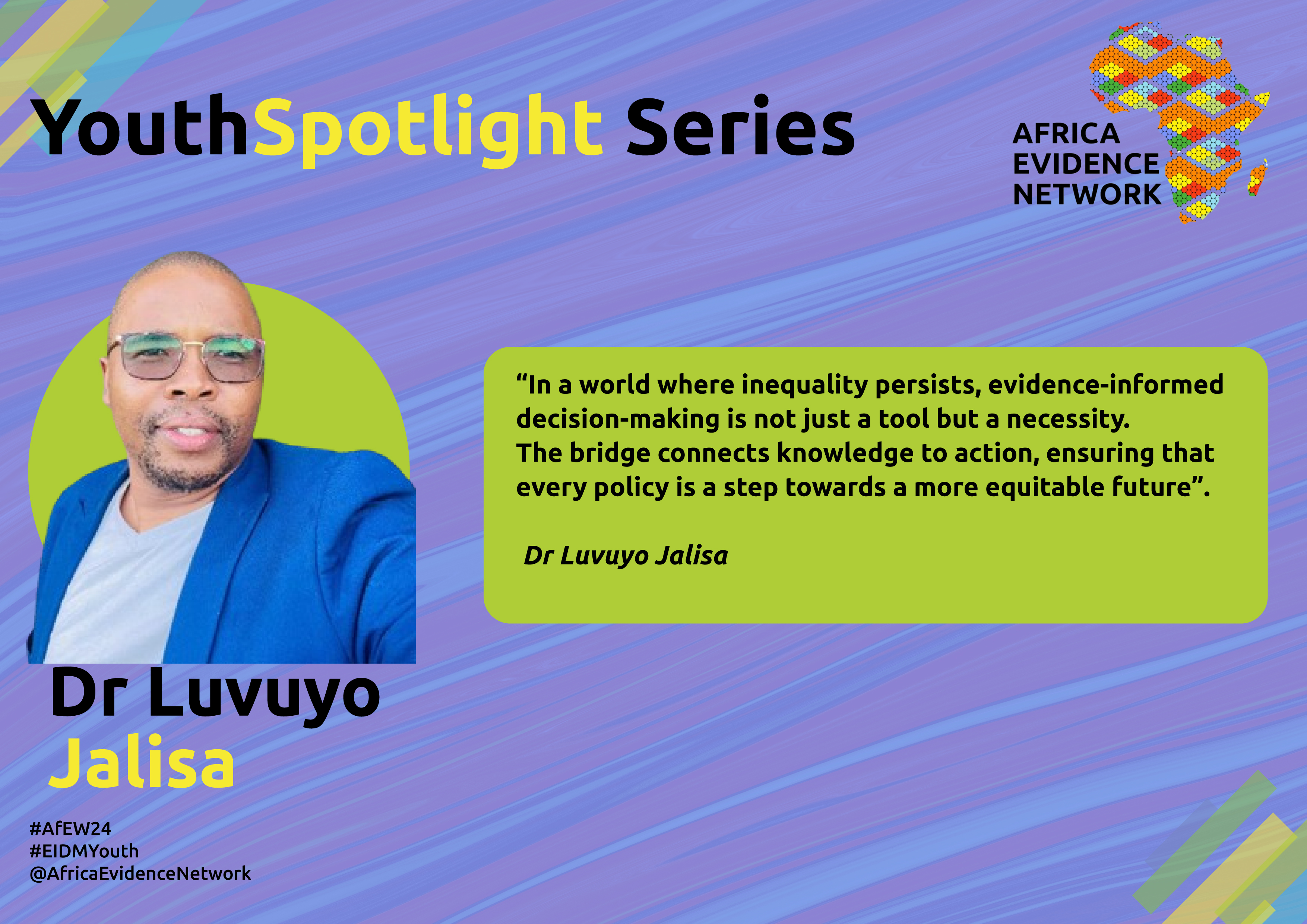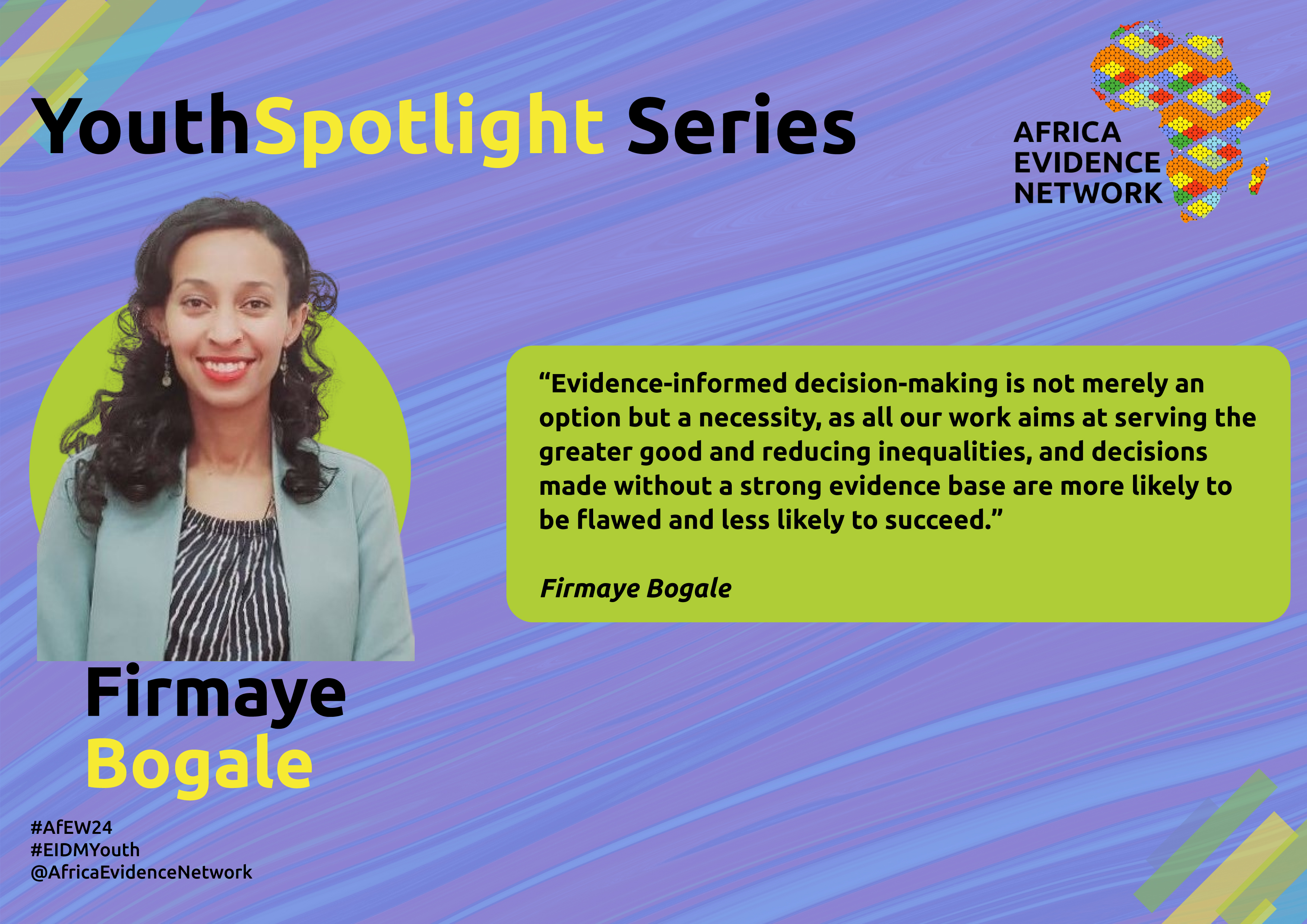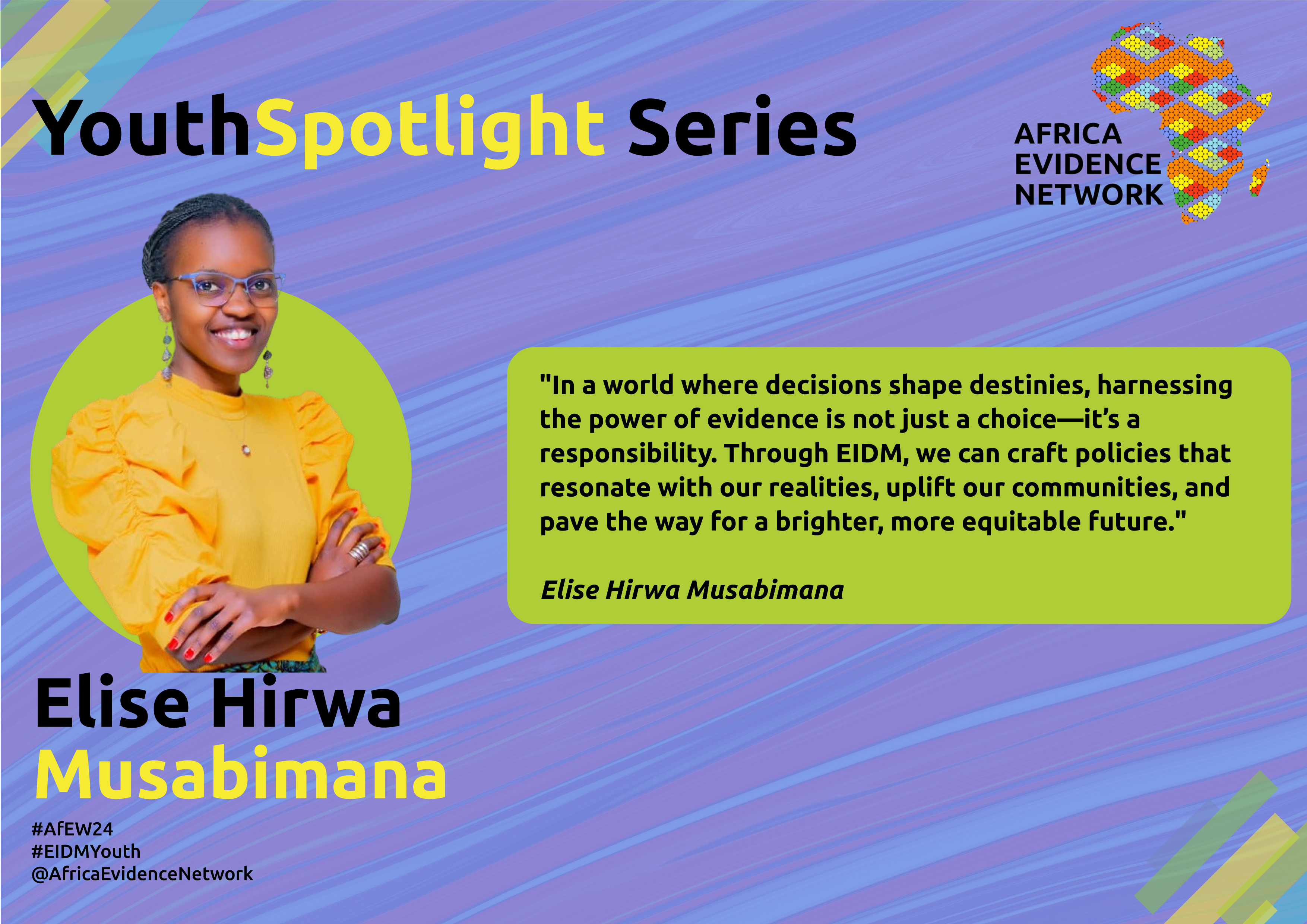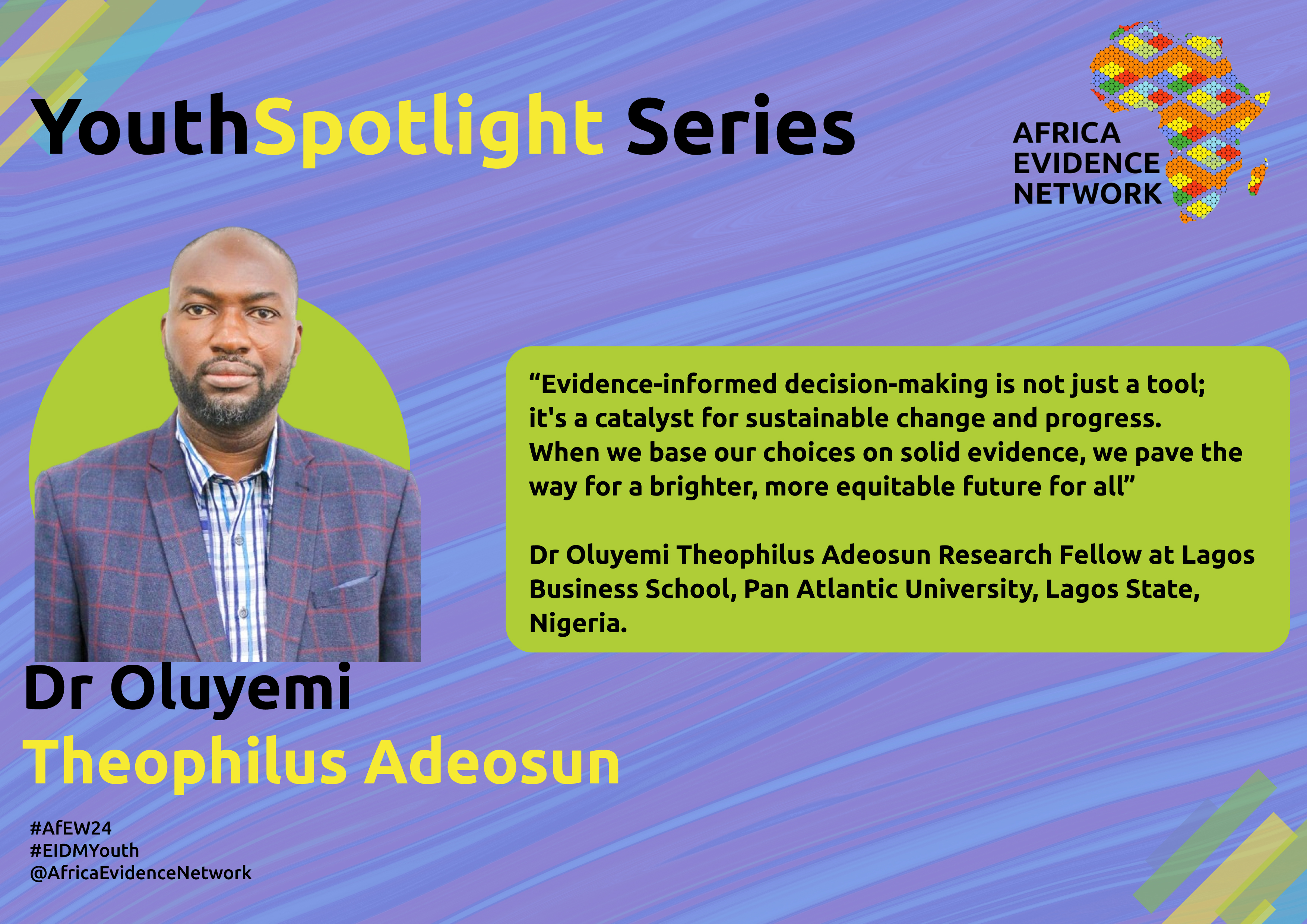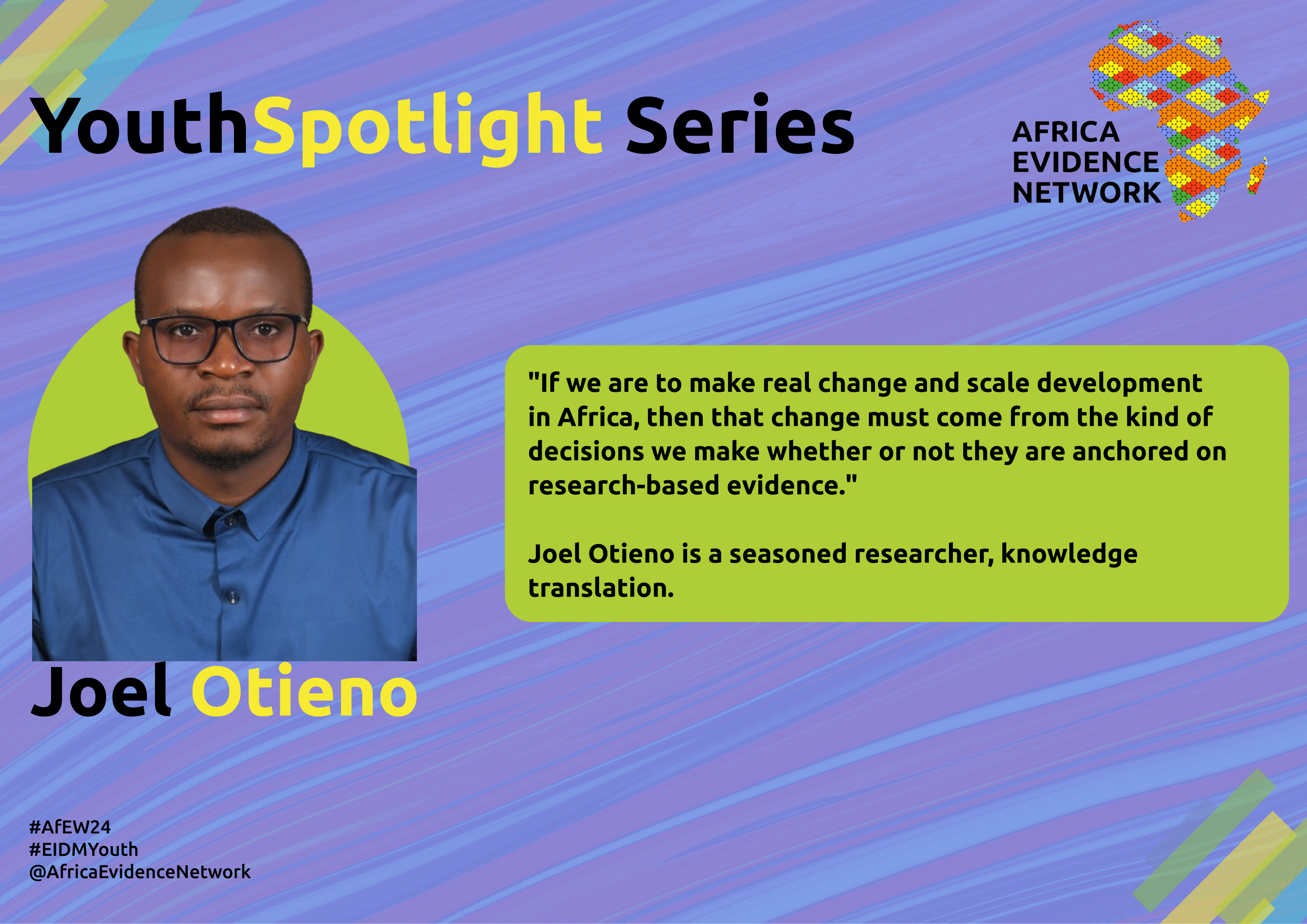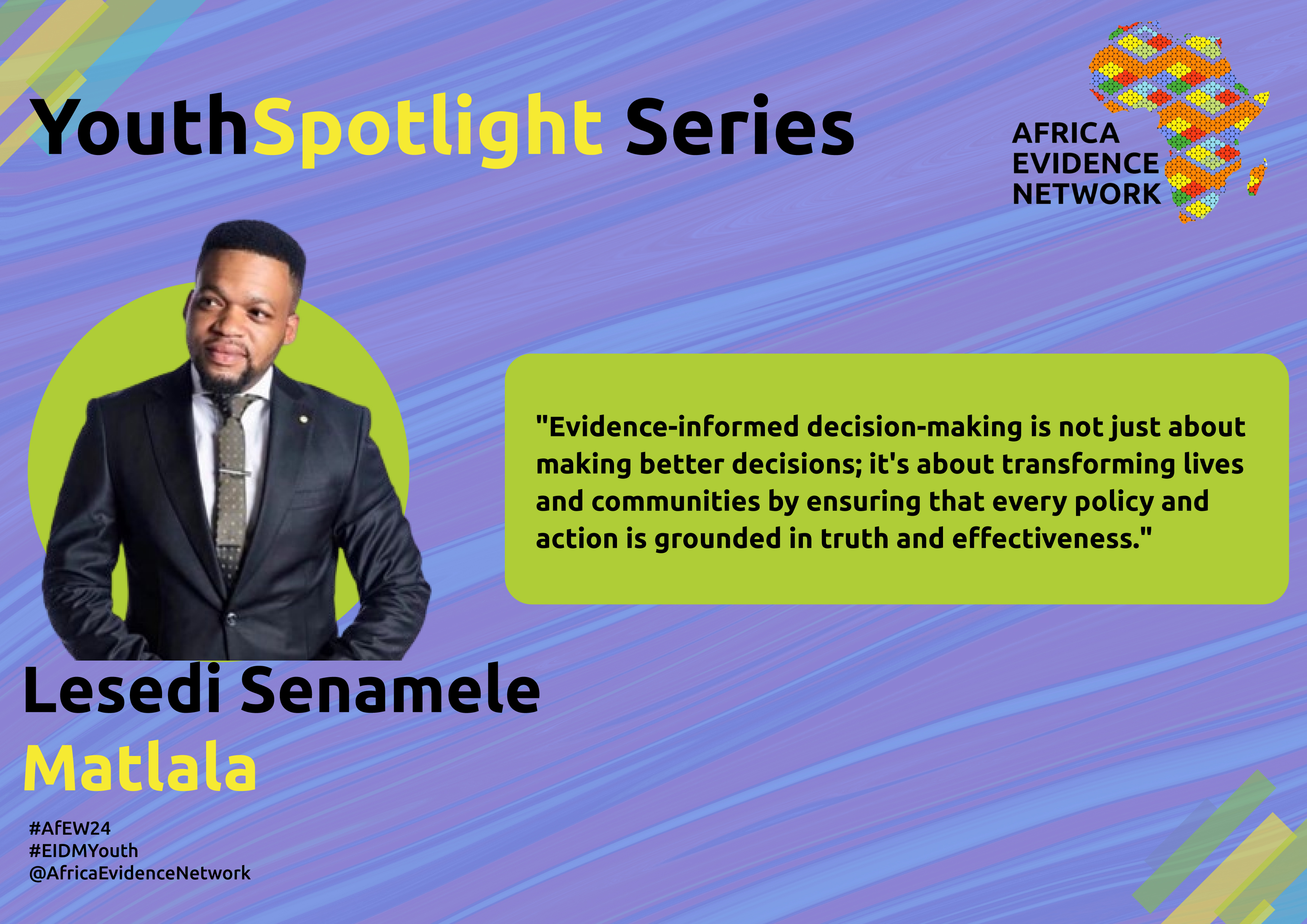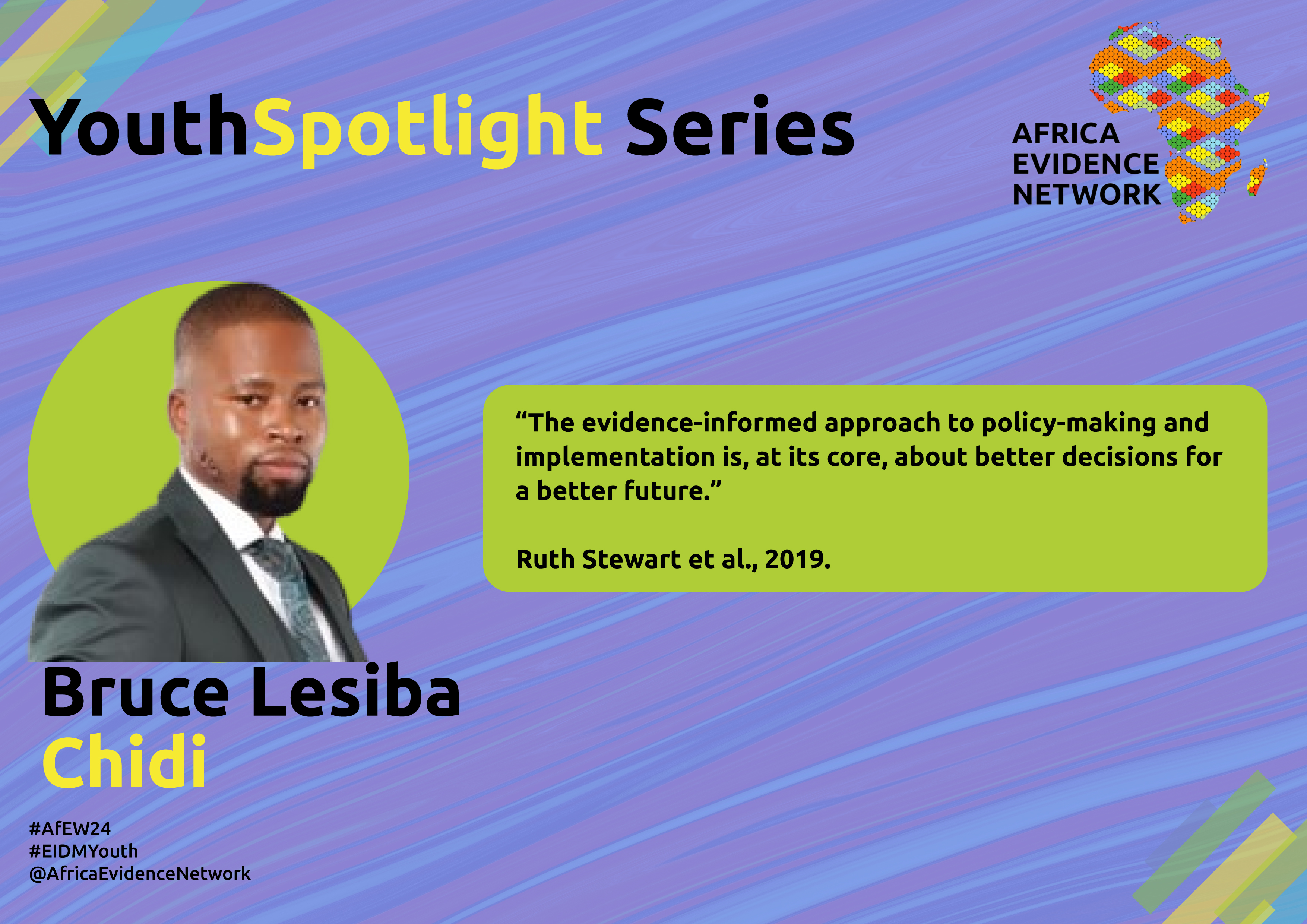
Welcome to the Youth spotlight series, where we offer first-hand insights into young leaders in the evidence-informed decision-making (EIDM) sector. You can discover their stories, achievements, and impact on our community. This is the heart and soul of the #EIDM movement.
In this conversation, the Africa Evidence Network talks to Bruce Lesiba Chidi, an Executive Director for GoGetters_Brand (Pty) Ltd.
Making a Difference with EIDM:
What inspired you to get involved with EIDM?
The Africa Evidence Network inspired me to get involved with EIDM. I joined the AEN after my friend and business partner told me about the stories he came across of Africans making a difference in their communities. I have always wanted to become an agent of change in my country but did not always know how. By joining the AEN, I endeavoured to meet like-minded Africans and potentially collaborate with them; while doing this, I came across the concept of EIDM and the transformation it brings.
Can you share a specific accomplishment you're proud of where EIDM played a key role? How did it make a positive impact?
There isn’t a specific accomplishment I have been directly involved in yet; however, a few EIDM activities are in the pipeline. The one that stands out the most is the Africa Evidence Youth League (AEYL) landscape report on EIDM use in the Education Sector in Africa. One of our aims as the first cohort of the AEYL is to transform education in Africa through EIDM. To do so, a clear understanding of the use of EIDM is first required; after that, we will identify opportunities to incorporate EIDM and push for it to play a more prominent role.
Have you faced any challenges promoting EIDM within your community or area of work? How did you overcome them?
Yes, there are numerous challenges in promoting EIDM in Education. The first and foremost is the lack of awareness about EIDM. For example, EIDM is everywhere – from policy making to the groundwork – but people on the ground often may resist EIDM based on stigma. However, once one builds rapport and is open and honest, EIDM gets a more significant reception, especially when its positive results appear.
Your Vision for the Future:
What are the biggest challenges you see facing EIDM implementation in Africa right now?
Africans face many challenges that require urgent attention, and at times, when engaging Africans to establish the evidence, they become despondent as it is viewed as part of the process of resolving challenges and not the resolution they seek. This is not to suggest that Africans are impatient; however, it is to acknowledge that the uptake of EIDM is long overdue: many attempts to solve African problems have been ineffective as they did not work for particular geographies. Leaders have attempted to implement ideas without fully understanding specific communities' unique challenges, even though they appear similar to other locations. This has often led to wasteful expenditure and may have exacerbated the issue instead of resolving it.
How are you working to inspire and empower other young people to get involved with EIDM?
Being a teacher makes it easy for me to connect with young people. Often, when they complain about specific challenges, I encourage them to seek working solutions and be proactive in ensuring their solutions are heard. Furthermore, I promote learners' participation in initiatives such as the Model United Nations. This inspires young people to understand the challenges other nations face in and beyond Africa and starts the conversation on overcoming these various issues.
Imagine the future of EIDM in Africa. How do you see EIDM evolving and creating a more positive impact?
I see EIDM playing a more significant role in the sustainable development of the African continent. More and more grassroots organisations will lead EIDM initiatives, which is what Africa needs: to have its voice heard by other Africans. This will ultimately, even organically, decolonise the continent. As more evidence is collected about the realities of Africa, presented and preserved by Africans, Africa will be able to effectively overcome historical challenges and spur rapid growth in an authentic African manner.
Sharing Your Passion (Quote):
Is there a powerful quote or statement you can share that captures your passion for EIDM and its importance?
“The evidence-informed approach to policy-making and implementation is, at its core, about better decisions for a better future.” – Ruth Stewart et al., 2019.
Perhaps you have a story or anecdote that exemplifies EIDM is making a difference.
EIDM is integral to the effectiveness of government and its interventions. Effective governance is required to improve the lives of millions of Africans living in extremely dire conditions. EIDM can do this as it fosters greater transparency, accountability, and sound decision-making.
About the author: Bruce Lesiba Chidi is a young professional passionate about promoting evidence-based decision-making in various settings. This passion has been further fuelled by his membership in the first Cohort of the Africa Evidence Youth League (AEYL). As a member of this esteemed group, he has been actively involved in the league's activities and has played a significant role in shaping its initiatives.
One of the areas where Buce made significant contributions is in promoting evidence-informed decision-making (EIDM) in education. He has demonstrated exceptional leadership skills in collaborating with schools to encourage using EIDM in education. Through these efforts, Bruce has been instrumental in empowering young minds to appreciate the importance of evidence-based decision-making in their daily lives. This has enhanced their academic performance and equipped them with valuable skills that will benefit them throughout their lives.
As part of the AEYL, Bruce has led initiatives to inspire and mentor young people to pursue careers in EIDM. These initiatives have fostered a sense of community among young evidence practitioners and provided them with opportunities to develop their skills and knowledge. His commitment to capacity building has produced high-quality deliverables, including communication pieces, analytical works, and concept notes. These achievements have positioned him as an emerging evidence practitioner with a bright future.
Bruce is participating in the second phase of the PACKS Africa mentorship programme, having successfully demonstrated his competencies in the first phase. This programme has further honed his skills and knowledge in evidence-based decision-making, making him an asset to any organisation. The mentorship programme has provided Bruce with valuable insights and guidance from experienced professionals in the field, which has helped him refine my skills and stay up-to-date with the latest developments in evidence-based decision-making.
Bruce is honoured to be nominated for the Africa Evidence Leadership Award (AELA) under the Emerging Leader Under 35 category, recognising his outstanding contributions to the league, his dedication to promoting EIDM in schools, and his commitment to empowering young people. This nomination is a testament to the hard work and commitment that he has put into his work as a young evidence practitioner. He is proud to be part of a community committed to promoting evidence-based decision-making and empowering young people to make a positive impact in their communities.
In conclusion, his experience as a member of the AEYL has been rewarding and enriching. Through his contributions to the league, he has been able to develop his skills and knowledge in evidence-based decision-making and make a positive impact on the lives of young people. Bruce is excited about the future and looks forward to contributing to the growth and development of the AEYL and its members.
Acknowledgements: The author(s) is solely responsible for the content of this article, including all errors or omissions; acknowledgements do not imply endorsement of the content. The author is grateful to Charity Chisoro for her guidance in preparing and finalising this article, as well as her editorial support.
Disclaimer: The views expressed in published blog posts, as well as any errors or omissions, are the sole responsibility of the author/s and do not represent the views of the Africa Evidence Network, its secretariat, advisory or reference groups, or its funders; nor does it imply endorsement by the afore-mentioned parties.
Suggested citation: Chidi, B.L. (2024) Africa's bright future is in evidence-informed decision-making (EIDM). Blog posting on 14 August 2024. Available at: https://www.africaevidencenetwork.org/en/learning-space/article/350/
